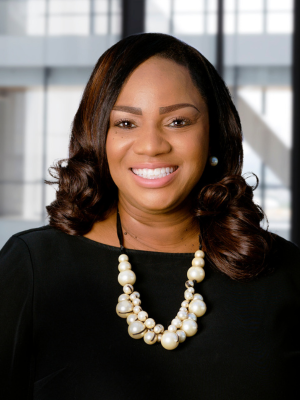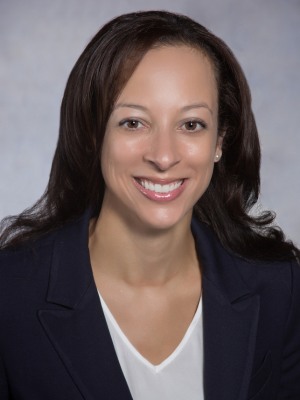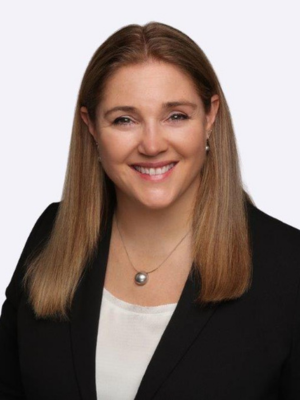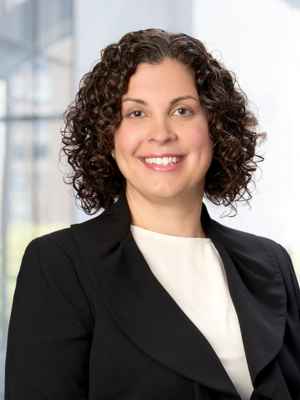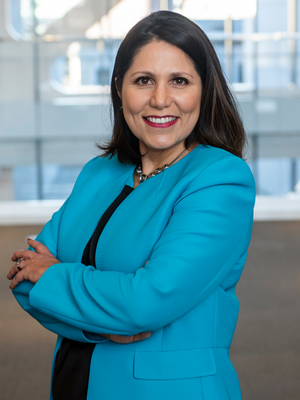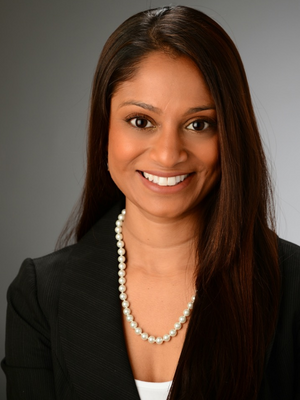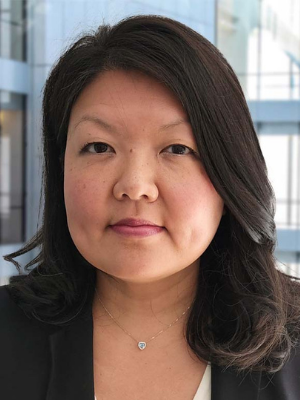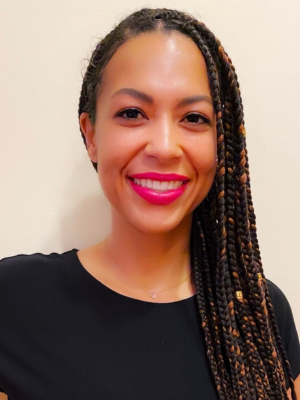 “It might seem tough at first, but I’ve come to learn that you have to relax and enjoy the ride. No journey is linear where you must pass A and B, to reach C, or else you’re lost. That’s just not how it works,” says Rachel Lockett.
“It might seem tough at first, but I’ve come to learn that you have to relax and enjoy the ride. No journey is linear where you must pass A and B, to reach C, or else you’re lost. That’s just not how it works,” says Rachel Lockett.
Lockett shares her thoughts on embracing a career pivot, building leadership skills through diverse experiences, prioritizing team development, and the importance of finding meaning in her work.
Pivoting from the Public to the Private Sector
Lockett’s path into marketing in the beauty industry took an unconventional route, beginning with a career in international relations. Working on the Mexico desk at the State Department while getting a graduate degree, she found herself intrigued by the macro subject matter and sense of altruism behind the work, but ultimately craved a faster pace and more control. This led her to pivot into the private sector, earning an MBA in marketing and finance and joining Johnson & Johnson’s international rotation program before landing a role at L’Oréal in New York.
She reflects, “I was interviewing at the UN while I was interviewing at L’Oréal, but the next phase for the UN was sitting for an exam. When L’Oreal offered me the job, I had to choose. I remember there being a lot of pressure to make a ‘right choice,’ feeling the weight of a decision that might be irreversible.”
Lockett recognizes that even though she felt the heaviness of the decision at the time, she is pleased with the way things turned out, particularly as she never even initially saw herself in the beauty space.
“Initially, I didn’t see myself as a ‘beauty girl,’ but my perception has changed over time. I’ve really grown to adore it. Throughout my career, I’ve delved into various roles in trade marketing, brand marketing, and consumer engagement, all within the beauty vertical. I’ve come to realize that I am, in fact, a ‘beauty girl’ and I proudly embrace this identity.”
Empowering Women to Express their Unique Individuality and Beauty
Lockett finds her marketing career in the beauty industry to be as dynamic as she anticipated, constantly offering new challenges and opportunities that energize her.
“The platforms, retailers and landscape of competitors are always changing…there is also the opportunity to work cross-functionally with retailers, media partners, and event activation vendors, making it both diverse and exciting.”
Her enthusiasm for the work shows through in what she has been able to accomplish, with her team winning an Ogilvy award and two Glossy awards for different brand campaigns. These achievements also reflect her commitment to finding innovative ideas to break through and “introduce MAC to a younger Gen Z consumer.” She continues, “a lot of these efforts have been specifically targeted around those goals and have successfully moved the needle in increasing our awareness among younger multi-ethnic consumers.”
Lockett’s aim for MAC is to continue to promote and expand diverse representations of beauty, whether it be body type, skin color and texture, sexual orientation, or gender, through thoughtful decisions around casting, who they feature on their story wall, influencers they work with, and people they feature on their social handles.
“All of those representations are really powerful, and they make a huge impact on how people see themselves and experience the brand’s transformative effect.” She continues, “it’s about encouraging self-expression and experimentation and affirming that everyone is beautiful in their own way.”
Becoming a Well-Rounded Leader who Uses Her Voice
Lockett emphasizes the dual importance of creativity and operational savvy in marketing leadership. While innovative ideas are significant, effective leadership also hinges on adeptly navigating organizational processes, securing resources, and assembling the right team. She advocates for cultivating leadership skills through diverse experiences rather than solely focusing on moving up the ladder.
“Success stems from a breadth of experiences. The broader your understanding and hands-on involvement across domains, the better equipped you will be to thrive in senior roles. Focusing on the richness and depth of experience versus the speed to get there will pay off in the long-term.”
As Lockett builds on her varied experiences to advance her career, she is committed to using her voice and point of view in how she shows up as a leader, particularly as a woman of color. Even though she finds the beauty industry to generally have more women in leadership roles, she notes that there are noticeably more men in the higher ranks of beauty.
She advocates, “As you move up, it’s important to bring your voice and your experience. Remember to speak up, because you bring a unique perspective and a richness to the conversation or strategy discussion that’s not always represented.”
Valuing the Development and Growth of Her Team
Building relationships and sustaining connections is another key element of Lockett’s leadership style, particularly when it comes to managing a team.
“As your team grows and as your profile becomes more visible cross-functionally, simple gestures like walking around the office, asking about people’s weekends, and fostering personal connections can make a big difference in their engagement and commitment because they know you genuinely care.”
Creating engaged and high-performing teams by letting everyone in on the “why” can also go a long way in making people feel included and that they are an important contributing team member.
“As you progress into senior leadership roles, you may gain insight into the ‘why’ of certain strategies, yet this information may not always trickle down to every team. Pausing to communicate the overarching vision to the broader group and explaining the reasons behind our collective efforts fosters camaraderie, understanding, and an investment from the entire team.”
Beyond engaging her team in the vision, Lockett fosters a strong team dynamic in being accessible and open to hearing feedback, demonstrating that the team has a voice and can influence change. She also looks for opportunities for the team to bond outside the office, whether it be a graffiti class or mini golf, so that the team can get to know one another in a more relaxed atmosphere, as she notes, “it can go a long way when down the line they might be in a challenging conversation or have to work long hours getting ready for a big launch.”
Coaching Helps Connect the Dots
Lockett’s insightful reflections on her development as a leader are testament to the value of executive coaching, a recent experience for her.
“Having external perspective has helped me connect the dots between my experiences and approach to things by having someone externally mirror it back to me. Also, through targeted resources and exercises, I’ve gleaned more insights into how other people learn and how I may need to adapt and present information to effectively communicate and engage with others.”
Lockett notes that the benefit of having someone outside the organization facilitate that reflective process is that it helps reveal potential limiting beliefs or behaviors that may not be beneficial, opening new possibilities for how to approach an issue.
“I’ve seen the impact of leadership coaching reflected in my ability to dedicate more time with my team, listen to their perspectives and advocate for what they need in a way that I may not have in the past.”
Making an Impact with the Relaunch of VIVA GLAM
Lockett is an inspirational leader who not only hopes to make an impact with her team, but also on a macro level through the relaunching of the MAC VIVA GLAM campaign. The charitable arm of MAC, VIVA GLAM has given over half a billion dollars globally to support organizations in their mission to create healthy futures and equal rights for all. Now thirty years after its founding, MAC VIVA GLAM has an expanded mission with new pillars including sexual equality, racial equality, gender equality and sustainability that all markets can tailor with grant funding.
“Being involved with VIVA GLAM is one of my favorite parts of working on MAC. I get to oversee the programs that we will run and the charities that we support, allowing me to play a role in making an impact on something – and someone – that is much bigger than myself.”
Reflecting on where she started with aspirations to work in international relations, she realizes, “finding what’s important to you and how to bring that into your work” is what she values most, and she is excited to have an opportunity to continue to do that in her leadership role at MAC.
By Jessica Robaire

